The Robots Are Us
CCL members Prof. Roger Luckhurst and Dr Caroline Edwards featured in a recent radio programme on BBC Radio 3 broadcast on Sunday 10 January 2021. Titled "The Robots Are Us" and presented by Ken Hollings, the programme looked at the legacy of Karel Čapek's play Rossum's Universal Robots (R.U.R.) on the 100th anniversary of the play's premiere in Prague's National Theatre in January 1921. Programme description: In January 1921, in a Europe still reeling from war and revolution, the Czech writer Karel Čapek created a worldwide hit with his 'comedy of science and truth' R.U.R. (Rossum's Universal Robots), flesh not metal, are sold around the world first to create a world free from arduous labour and then to fight our wars. Free from consciousness or feelings. What could possibly go wrong? Humanity stops breeding and a new class of feeling robots strike out for a brave new world once humankind is all but exterminated. This now seems awfully familiar but in 1921 not so much. Ken Hollings examines the creation and legacy of a play that both gifted the world the word Robot and began an enduring cliché that intelligent machines will rise up and destroy us. Written before pulp science fiction and at the height of Taylorism and the Ford assembly line, it found an international audience anxious about the fate of workers and work, revolution and mass production. But Čapek's fleshy creations, more replicant that TOBOR, would soon be overlayed with the image of the clanking metal machine that would surely seek world domination on the covers of pulp science fiction and movies. In fiction the SKYNET is always falling, our robot overlords must be welcomed and the singularity is just around the corner. The science of Robotics would only begin in earnest decades after R.U.R. and A.I. and its ethical conundrums of existence, rights and reasoning belong to our 21st century yet Capek's notion of the revolt of the machines still dances through our debates and imagination. Ken Hollings talks to historians, roboticists, to grasp the power of R.U.R. and all that has followed. Click here to listen to the programme on BBC Sounds. For further information on the MA programmes that Prof. Roger Luckhurst and Dr Caroline Edwards direct, see our MA Modern and Contemporary Literature and MA Contemporary Literature and Culture. Featured image by Марьян Блан | @marjanblan on...
Katherine Angel LRB Book Launch
1st March 2021, 7pm (LRB bookshop online) CCL member and Director of our MA Creative and Critical Writing, Dr Katherine Angel, will be launching her new book at the London Review of Books on 1st March 2021 at 7pm (GMT). Titled Tomorrow Sex Will Be Good Again: Women and Desire in the Age of Consent, Katherine Angel will discuss the work in conversation with Olivia Laing, author of Funny Weather (Picador). Spanning science and popular culture, Tomorrow Sex Will Be Good Again examines pornography and literature, debates on #MeToo, consent and feminism to challenge our assumptions about women’s desire. Why, she asks, should they be expected to know their desires? And how do we take sexual violence seriously, when not knowing what we want is key to both eroticism and personhood? In today’s crucial moment of renewed attention to violence and power, Angel urges that we remake our thinking about sex, pleasure, and autonomy without any illusions about perfect self-knowledge. Only then will we fulfil Michel Foucault’s teasing promise, in 1976, that “tomorrow sex will be good again.” The book has already been described as “a provocative, elegantly written analysis of female desire, consent, and sexuality in the age of MeToo.” Olivia Laing calls it “[a]n ardent, rigorous, nuanced investigation into the question of consent, at once illuminating and empowering. A truly vital guide to navigating the difficult waters of 21st century desire.” To book your ticket for the LRB online book launch, click here. To pre-order a copy of Tomorrow Sex Will Be Good Again, click here. For further information on the MA Creative and Critical Writing that Katherine Angel directs, click...
Radical Attention Book Launch
CCL member and Director of Birkbeck’s MA in Creative Writing, Julia Bell, recently launched her new book Radical Attention, which was published by Peninsula Press in October 2020. You can watch the launch event below, in which Julia Bell discusses how attention has been commodified within digital capitalism with Olivia Laing. Radical Attention is an extended essay on the battle for our attention in the age of distraction. In today’s online economy, attention has become a commodity to be bought and sold. Bombarding us with free smartphone apps and news websites, developers and advertisers have turned what and how focus our attention into the world‘s fastest growing industry. In exchange for our attention, information and entertainment is ever at our fingertips. But at what cost? In this essay, at once personal and polemical, meditative and militant, Julia Bell asks what has been lost in this trade off. How can we reclaim our attention? In a world of infinite distraction, how can attention become radical? Olivia Laing has called Radical Attention a “[t]errifying, clarifying and ultimately hopeful, this is an essential book. Julia Bell grapples with the grim realities of our online lives, setting out possibilities for resisting and reclaiming our imperilled freedoms.” For more information about Birkbeck’s MA Creative Writing, which Julia Bell directs, please click...
Exploring Physician Burnout
Birkbeck CCL member and Director of the Birkbeck Centre for Medical Humanities, Prof. Jo Winning, has just published a new article in the BMJ Medical Humanities journal on "The use of an object: exploring physician burnout through object relations theory." The article (see below) examines the crisis of physician burnout, which has been widely and repeatedly reported across the mainstream press and medical journals around the world in the closing years of the second decade of the 21st century. Despite multiple systematic reviews and commentary on the scale of this ‘global epidemic’, understandings of both the phenomenon and the most effective interventions remain limited. Practice-based medical humanities represents the collaborative sharing of conceptual tools for understanding illness and clinical practice and the shouldering of responsibility for mapping the shape of care, in all its local, national and global contexts, thinking-with rather than critique on the profession and its practices. In keeping with this approach, this article offers a new perspective on the contemporary crisis of physician burnout by exploring the objectification of the clinician’s body within the systems and practice of healthcare. Within the context of medical humanities’ scholarship, discussions of objectification usually navigate towards a discussion about patient identity and its potentially reductive objectification within the frameworks of biomedical science. However, this article crosses the cultural divide between clinician and patient, and comes to focus on the objectification of the clinician herself, using object relations theory from the field of psychoanalysis to excavate the psychodynamics of care and their impact on clinicians, and the systems of healthcare in which care is delivered. Jo's article develops the feminist epistemological concept of 'thinking-with', alongside Donna Haraway's concept of tentacular thinking, which she has also written about in a recent article published in the journal Feminist Encounters (see here for info on this). (If you can't see the article embedded below just hit refresh). Featured image by Rob Rogers, reproduced in Jo's article with permission and shared here under a CC BY-NC...
Asylum Monologues
by Dr Agnes Woolley, Lecturer in Transnational Literature and Migration Cultures One of the Arts Weeks at the School of Arts this year coincided with Refugee Week (15th-21st June) and this performance from Ice and Fire’s Actors for Human Rights kicked off their virtual tour of the UK. With a pared down performance style based on the verbatim testimony of asylum seekers, Asylum Monologues is well-suited to on screen delivery and listening to the testimony of asylum seekers working their way through the UK system is a stark and timely reminder of the iniquities embedded in so many of our institutional and procedural structures. Much of my work has been concerned with issues of representation and voice in the context of refugee narratives. What forms and in what fora do we encounter refugee stories? What are the ethics of representation in this context? And how have refugees found ways to give voice to their experiences outside the legal infrastructure of the asylum adjudication process? The idea of voice and voicing experience has been – since the middle of last century – the preeminent way in which human rights are analysed and asserted. And I would say that testimony has become the prevailing narrative mode for refugee experience. But the testimonial forms we find in documentary, film and performances like Asylum Monologues are also intricately linked to the legal process to which asylum seekers are subject, where they must testify to a narrative of persecution. The United Nations Convention Relating to the Status of Refugees, first ratified in 1951, continues to be the basis for asylum claims in most refugee-receiving countries (although the African Union has a different and more expansive definition for the continent that has a much larger proportion of the world’s refugee than Europe). The Convention defines a refugee as one who has a ‘well-founded fear of persecution’. Enacted at the level of the signatory nation state, the procedural characteristics of the asylum decision-making process thus demand a particular narrative of persecution for the conferment of refugee status and inclusion in the civic body. For this reason, perhaps more than any other aspect of human rights legislation, the Convention Relating to the Status of Refugees depends almost entirely on the story of the claimant. But claimants have very little agency over this story in the legal realm because the process operates on a particularly restrictive set of narrative conditions. On the whole asylum seekers must answer questions, rather than be allowed to tell their story in their own way. Translators can often be a barrier to expression if, for example, they speak a different dialect or if the translator...
Of Mud & Flame
by Joseph Brooker Penda’s Fen is a 90-minute television film made for the Play for Today slot and screened in 1974. Its content and history are discussed already on a post here. Though received with interest at the time, it then dropped out of sight for over fifteen years, and did not truly come back to view till the twenty-first century. In 2016, when Penda’s Fen had earned the phrase ‘cult film’ more than most, it was issued on DVD by the BFI. A year later, two postgraduate researchers from Birkbeck’s Department of English & Humanities, Matthew Harle and James Machin, organized a conference, Child Be Strange, at the BFI to celebrate and explore the film, ahead of a commercial screening. The Centre for Contemporary Literature supported this conference, and two of its members – Professor Roger Luckhurst and I – have contributed to a subsequent volume that developed from the conference and was published in late 2019. Of Mud & Flame, edited by Harle and Machin, is the fullest assembly of material on Penda’s Fen that is ever likely to exist. It contains versions of papers given at 2017’s event (including Roger Luckhurst on contexts of the 1970s, Adam Scovell on the subgenre of Folk Horror, Carolyne Larrington on women in the film, and Beth Whalley on Medieval sources), along with wholly new essays, interviews with key actors from the film, a foreword and afterword by scriptwriter David Rudkin, and the entire script of the film. A remarkable demonstration of the richness of the film, the book also represents the outcome of a collaborative process initiated by Harle and Machin at Birkbeck. In February 2020, events were held to promote the book, at the BFI, London Review Bookshop, and Whitechapel Gallery. On 29th February I attended the last of these events, where the film was introduced by the erudite Medievalist Beth Whalley and the unstoppable curator Gareth Evans. I must now have seen this film half a dozen times, but this was the first on the big screen. It made me concentrate differently and see even more than several previous viewings had highlighted – like the detail of the music, the Dream of Gerontius, in the first scene; the whole motif of the dissonant musical representation of God had passed me by. Most of the film is now so familiar, to so many, that it could be a Rocky Horror Penda Show, cult-TV fans intoning the dialogue as it comes. The scenes don’t, though, follow a very obvious order; apart from protagonist Stephen Franklin’s gradual journey from conservatism to discovery, they feel discrete, as though they could often be...


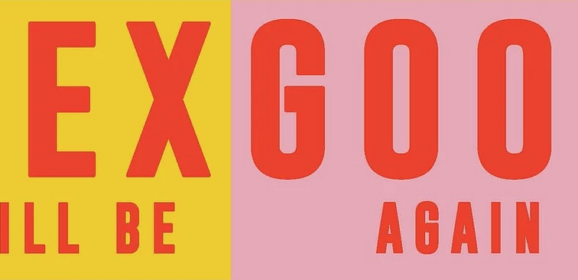

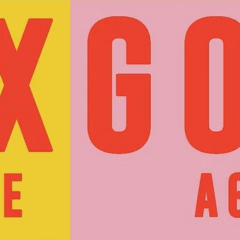
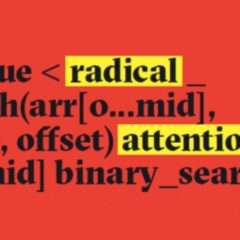
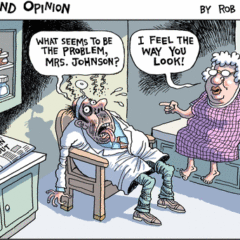
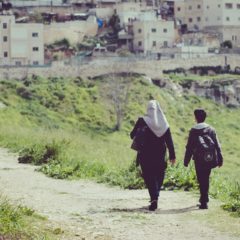
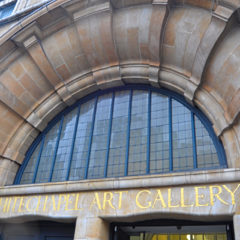
Recent Comments